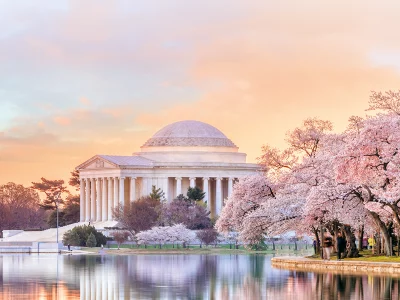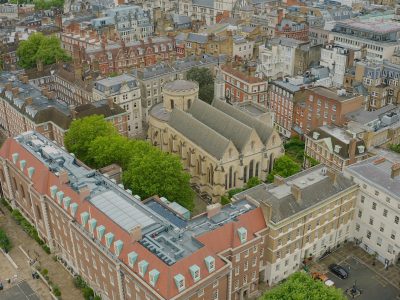

USA (1)
By Afiya Amesuw
A Complex Relationship with Race and the Legal System
The history of the United States cannot be separated from its legacy of slavery, segregation and racial inequality. These injustices have profoundly shaped the legal system, influencing laws, judicial administration and the lived experiences of marginalised communities. Today, systemic disparities remain evident across criminal justice outcomes, access to representation and broader inequities.
Notwithstanding this history, significant strides have been made toward fostering greater representation and inclusivity in the US legal profession. The US judiciary has become increasingly diverse, with judges from historically underrepresented communities assuming prominent roles. This representation is vital, not only for public confidence but also for ensuring that justice reflects the lived realities of those it serves.
It was within this context that I pursued the Pegasus Scholarship. In the UK, where Black people remain starkly underrepresented in both the Bar and the judiciary, the scholarship presented an invaluable chance to study how positive action can foster inclusivity. As a Black barrister, I saw this as an opportunity to examine how diversity is cultivated and to reflect on lessons for my own jurisdiction.
The Judiciary
California was the first stop, where I observed the state’s success in expanding diversity on the bench. Over the last 18 years, the number of Asian, Black and Hispanic judicial officers has doubled. Conversations with leaders such as Luis Céspedes, Governor Newsom’s Judicial Appointments Secretary, highlighted how transparency, mentorship and valuing varied experience could broaden eligibility without compromising meritocracy.

Meeting judges such as Chief Judge Troy Nunley and Sacramento’s Presiding Judge Bunmi Awoniyi, whose journey from British barrister to US judge was deeply inspiring, provided tangible examples of representation in action. Further discussions at the California Supreme Court with Chief Justice Patricia Guerrero and Justices Martin Jenkins and Carol Corrigan underscored how diversity enriches judicial philosophy and enhances public trust. These experiences collectively illustrated how inclusive judicial appointments strengthen justice by incorporating broader perspectives.
Indigenous Law
A critical dimension of America’s reckoning with race lies in its treatment of Native peoples. Lectures at Arizona State University and visits to the tribal legal clinic revealed the unique challenges faced by Native American communities in areas such as sovereignty, land rights and cultural preservation. Judging a moot concerning the adoption of a Native American child reinforced the significance of the Indian Child Welfare Act in protecting cultural continuity.
The appointment of Judge Paula Lomayesva as the first member of a federally recognised California tribe to the state’s superior court, during my time in the US, was particularly significant, symbolising progress in recognising Indigenous voices within the judiciary.
Advocacy
The Pegasus programme also provided insights into advocacy practices across the US. Observing a deposition in Chicago highlighted the contrast between American discovery, with its emphasis on live questioning, and the UK’s reliance on written statements. Witnessing voir dire in Phoenix revealed how jury selection itself becomes a critical stage of advocacy, allowing lawyers to shape the trial before opening arguments, compared to the UK’s randomised process.
From local criminal trials to oral arguments before the Maryland Supreme Court, I observed a range of advocacy styles, culminating in exposure to the highest levels of federal practice. Encounters with leaders such as Solicitor General Elizabeth Prelogar and Assistant Attorney General Kristen Clarke demonstrated the interplay between politics and litigation.
Equally significant were specialised courts in Arizona, such as Veteran and Mental Health Courts, which address the root causes of offending to reduce recidivism. These initiatives illustrated how advocacy can extend beyond adversarial models to embrace problem-solving approaches that prioritise rehabilitation and justice.
Legislation
The programme also offered a window into lawmaking at both state and federal levels. In California, discussions with legislative advisors illuminated the process of transforming policy into statute, while Maryland highlighted the challenge of part-time legislators balancing civic duty with professional life.
In Washington DC, visits to the Capitol, Pentagon and Library of Congress allowed us to delve into the nation’s legal and political history. Observing Supreme Court oral arguments on election day underscored the ongoing dialogue between law, politics and democracy. Further, standing on the House Floor, where historic debates shaped the nation, was a humbling reminder of the law’s power to shape society.
The Legal Community
A particularly striking aspect of US legal culture was the strength of the American Inns of Court. Inspired by their English counterparts, these Inns provide mentorship, collegiality and shared learning across the profession. From lively ethics skits in California to Thanksgiving-themed discussions in Maryland, the Inns demonstrated how community and camaraderie strengthen the practice of law.
Reflections and Legacy
The Pegasus Scholarship was an extraordinary journey – challenging, inspiring and deeply enriching. It revealed the progress the US has made in confronting historic inequities, while also acknowledging the work that remains. Across every state, I saw how diversity, innovation and community can strengthen the legal system.
These lessons resonate strongly for the UK. While our contexts differ, the challenges of representation, access to justice and inclusion are universal.
Above all, the programme highlighted the importance of global dialogue. The exchange of ideas across jurisdictions not only enriches individual practitioners but also strengthens the profession collectively. The connections I forged and the insights I gained will continue to shape my approach to advocacy and my vision for a more inclusive Bar.
A thank you to my partner in crime, Hannah Gilliland, who made this experience even more special!
Afiya Amesuw
No5 Barristers’ Chambers
